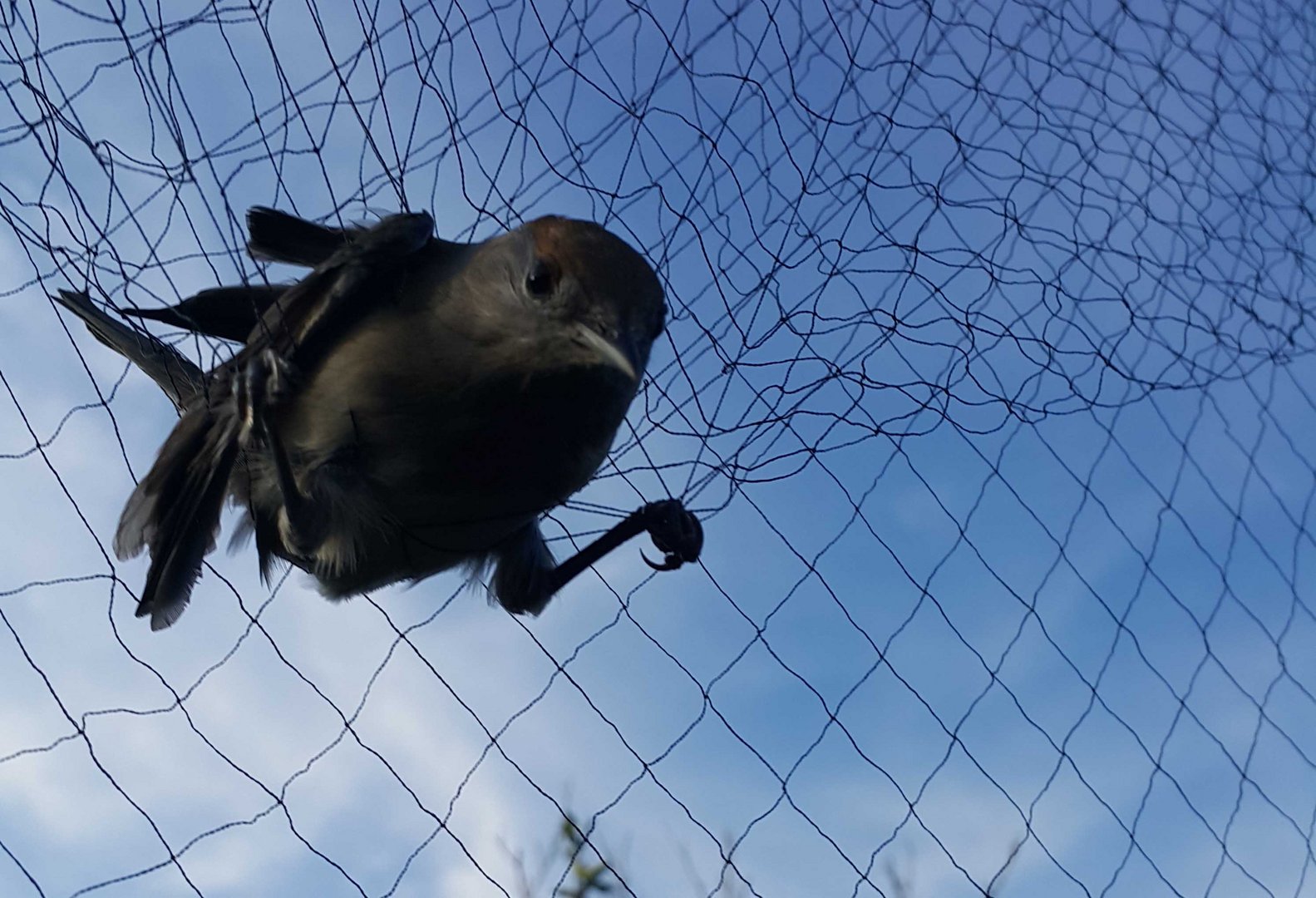A man in Xylophagou was arrested on Tuesday on hunting charges after British bases police officers discovered several protected black caps, also known as ambelopoulia, stored in the refrigerator at his home, as well as two illegal trapping nets.
According to a statement released by the bases police, the man also faces fines of up to €6,000.
Police officers swooped on the man’s property during an early morning operation. They confiscated the nets and 23 frozen black caps. They were also able to release a number of snared birds before they were killed.
“As a police force operate a zero-tolerance approach to mist netting and as such, the fines for undertaking this crime reflect the seriousness,” superintendent Panicos Panayi said.
“The fines have increased enormously and in this case the man can be fined €2,000 for possession of nets and a further €500 for every additional net.
“On top of that, there is also the potential for a fine of €2,000 for possession of black caps and a further €100 for every bird, so we hope these heavy fines represent a strong deterrent for those considering bird trapping.”
In an earlier operation that took place on August 31, a man from Achna had also been arrested for suspected poaching offences and possession of a firearm and live cartridges in his vehicle.
Following police intelligence gathered on the man, officers were able to locate the individual’s vehicle and secure a search warrant for his home, where a refrigerator containing 100 wood pigeons, four hares and ducks were all frozen inside.
Both men are due to appear in court in the coming days.
“Hunting is only permitted during the correct times of the season and this man was arrested after he was discovered with a firearm in his car outside of the hunting window and this is an offence,” Panayi said.
“Our house search subsequently uncovered the birds frozen inside a fridge so he will also be charged with poaching offences.”
According to the statement, since the launch of the SBA police’s community action team in 2016, bird trapping numbers have been reduced by almost 100 per cent.







Click here to change your cookie preferences